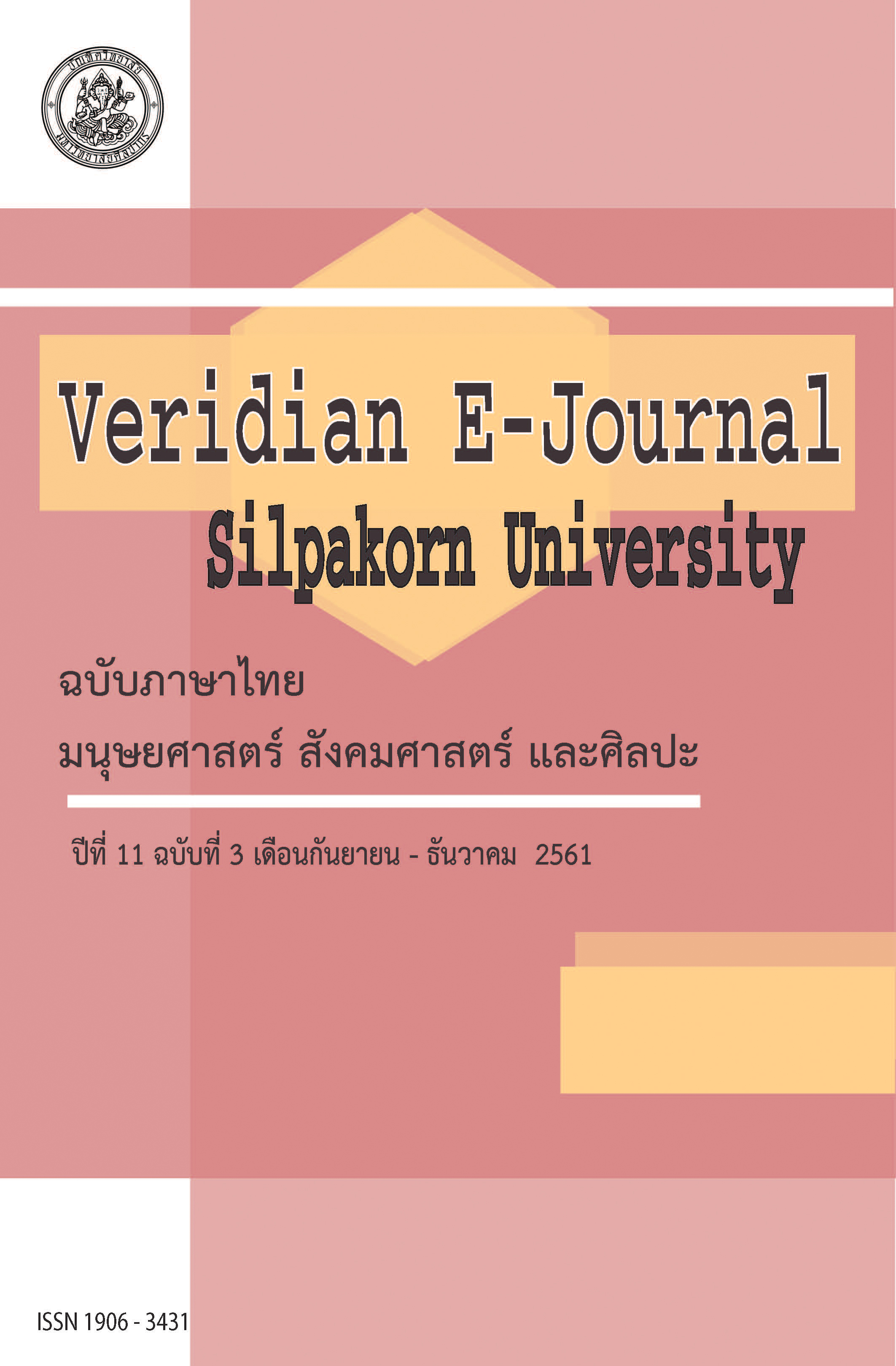การพัฒนารูปแบบการจัดสวัสดิการสังคมสำหรับผู้สูงอายุที่เหมาะสมกับภูมิสังคมของ จังหวัดเพชรบุรี (Research and Development on Model of the Elderly Social Welfare Provision Appropriate to Socio-geographic Basis of Phetchaburi)
Main Article Content
บทคัดย่อ
การวิจัยครั้งนี้เป็นการวิจัยเชิงคุณภาพ โดยใช้รูปแบบการวิจัยและพัฒนา มีวัตถุประสงค์เพื่อพัฒนารูปแบบการจัดสวัสดิการสังคมสำหรับผู้สูงอายุที่เหมาะสมกับภูมิสังคมของจังหวัดเพชรบุรี และทดลองรูปแบบการจัดสวัสดิการสังคมสำหรับผู้สูงอายุที่พัฒนาขึ้นในพื้นที่ 3 ตำบล เครื่องมือที่ใช้ในการเก็บรวบรวมข้อมูล ได้แก่ แบบสำรวจข้อมูลเบื้องต้น แบบสัมภาษณ์ และประเด็นคำถามที่ใช้ในการสนทนากลุ่ม กลุ่มตัวอย่างได้จากการคัดเลือกกลุ่มตัวอย่างแบบเจาะจง ประกอบด้วยนายกองค์การบริหารส่วนตำบล ประธานชมรมผู้สูงอายุและคณะกรรมการชมรมผู้สูงอายุ กลุ่มละ 30 คน และคณะทำงานผู้สูงอายุประจำหมู่บ้านๆ ละ 4-5 คน ดำเนินการวิจัยโดยการสำรวจข้อมูลขององค์การบริหารส่วนตำบลการสัมภาษณ์ประธานและกรรมการชมรมผู้สูงอายุ การจัดประชุมเชิงปฏิบัติการ และการจัดสนทนากลุ่มผลการวิเคราะห์ข้อมูลโดยการวิเคราะห์เนื้อหา พบว่า รูปแบบการจัดสวัสดิการสังคมสำหรับผู้สูงอายุที่เหมาะสมกับภูมิสังคมของจังหวัดเพชรบุรีคือ ชมรมผู้สูงอายุควรเป็นแกนนำในการจัดกิจกรรมโดยมีคณะทำงานผู้สูงอายุระดับหมู่บ้านเป็นผู้ประสานงานและกลุ่ม องค์กร หน่วยงานที่เกี่ยวข้อง ช่วยส่งเสริมสนับสนุนปัจจัยต่างๆ ในการจัดกิจกรรม การจัดกิจกรรมควรจัดในระดับหมู่บ้านมากกว่าเดือนละ 1 ครั้ง และผู้สูงอายุนำความรู้และทักษะที่ได้ไปปฏิบัติเป็นประจำวันที่บ้านของตนแล้วนำมาแลกเปลี่ยนประสบการณ์กันในการจัดกิจกรรมระดับหมู่บ้านครั้งต่อๆ ไป กิจกรรมระดับตำบลควรจัดอย่างน้อยเดือนละ 1 ครั้ง และกิจกรรมระดับจังหวัดควรจัดอย่างน้อยปีละ 1 ครั้ง นอกจากนี้ชมรมผู้สูงอายุควรตั้งคณะทำงานด้านการจัดหาทุนสำหรับใช้จ่ายในการจัดกิจกรรม เมื่อนำรูปแบบไปทดลองกับชมรมผู้สูงอายุใน 3 ตำบล พบว่า คณะทำงานประจำหมู่บ้านของแต่ละชมรม สามารถดำเนินโครงการ/กิจกรรมที่จัดเตรียมกันไว้ได้ และได้รับการสนับสนุนทรัพยากรจากหน่วยงานที่เกี่ยวข้อง
This qualitative study applying research and development approach aimed to develop the model of the elderly social welfare provision appropriate to socio-geographic basis of Phetchaburi Province and to try out the model in 3 sub-districts. The tools for data collection were a preliminary data checklist form, an interview form, and questions for focus group discussion. The samples, selected by using purposive sampling method, consisted of 30 presidents of sub-district administrative organizations, 30 presidents of the elderly clubs, 30 committees of the elderly clubs, and the village taskforce, 4-5 persons each village. The data were collected by surveying, interviewing, organizing workshop, and organizing focus group discussion. The data analysis by using content analysis revealed that the proper model of the elderly social welfare provision consisted of the following aspects: 1) the elderly club by the coordination of village taskforce should be the leader in organizing activities for the elderly in the village and sub-district, 2) the relevant groups, organizations, and offices should support essential resources for organizing activities, 3) the activities in the villages should be held more than once a month and the elderly attending the activities should apply the knowledge and skills they have got to practice in daily life, 4) the elderly should share their experience to each other in the next meeting, 5)the activities in sub-district and province levels should be held at least once a month and once a year respectively, and 6) the taskforce for raising funds should be established in every elderly club. After the model being tried out in 3 sub-districts, it was found that the village taskforce could successfully organize the projects and activities they planned with the support of resources from relevant organizations.

